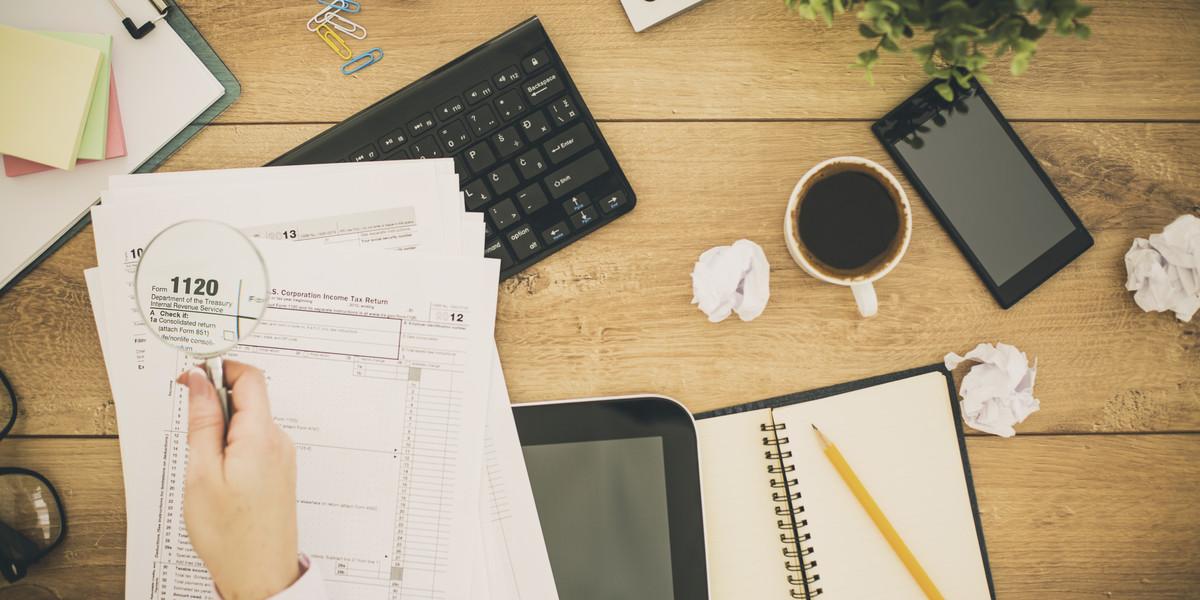Are you one of those who stuffs any letter that you receive from HMRC straight into a draw, very possibly without evening opening it, or ignores any online contact that you receive from the taxman? If you are…. you suffer from Brown Envelope Syndrome and should read on…
Don’t put your head in the sand
While I might not be able to convince you to love the taxman I should be able to get you to see the benefit in engaging early.
Over 10 million UK citizens receive a tax return each year, in turn over 90% complete and file theirs before the 31 January following the tax year end. They are the compliant, the ones who get to sleep at night.
My last paragraph was deliberately flippant to draw attention to what I see as the main reasons why you should engage with the tax system early. Quite simply, it is peace of mind.
Benefits of early engagement
There are of course more tangible benefits arising out of engaging early. For instance, you cannot expect to receive a repayment to which you might be due until your tax -return has been filed.
Furthermore, from the moment that your tax return has been filed you can stop worrying about incurring late filing penalties or interest.
Another bi-product of filing returns early that should not be underestimated is that you will know the size of your tax liability well in advance of its due date.
Not only will you be able to adjust your budgeting accordingly you will not be left potentially facing a last-minute shock if your actual tax liability was greater than you had estimated.
The road to an easier life
Good news; the road to salvation is neither long nor torturous.
All you need to do is take a series of baby-steps, at the right time and it will mean that when you receive your notice to file a tax return your heart will not be filled with the usual level of dread and foreboding.
Who knows you might almost look forward to completing the document.
My top tips to achieving your peace of mind
There are several easy steps which you can take which will help to make your return completion easier my top tips are, as follows:
1. Filing is key
Dedicate a folder, physical or virtual, to the storage of all tax-related documentation as soon as it is received. To make your life even easier it would be best to start a fresh folder for each new tax year.
2. File key documents away – straight away
Retain copies of all p45s, p60s, certificates of interest, dividend vouchers and other important third-party tax-related-documentation that you receive and store them in your tax folder as soon as you have it in your possession. That way, when that fateful day arrives and you need to start work on your end-of-year return you will know exactly where to put your hands on your supporting evidential-documentation.
3. Keep hold of contributions proof
Ensure that you obtain proof of your in-year pension contributions, donations made under gift aid and professional fee subscription and store them in your tax folder as soon as you have them in your possession. While some of the above have basic rate tax relief given at source, if you are a higher rate taxpayer you will be able to further reduce your tax liability.
4. Stay on top of your real-time expenditure
Keep contemporaneous records of work-related-expenditure to support any end-of-year claim that you might make. For instance, record details of your related mileage at the time of making a journey using either a paper-based log or one of the many mileage recording apps that are now available to download free. After all, it is some much easier to record such activities in real-time than it is trying to struggle to remember the what you did, possibly, a year later.
5. A little and often is the way to go
If you’re self-employed get in the habit of keeping your business’s accounting records up to date. Remember, little and often is so much easier than trying to process all of a year’s paperwork in a panic a few days before your tax return is due to be filed.












